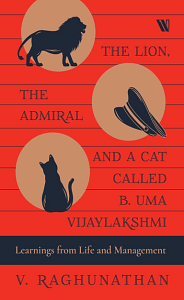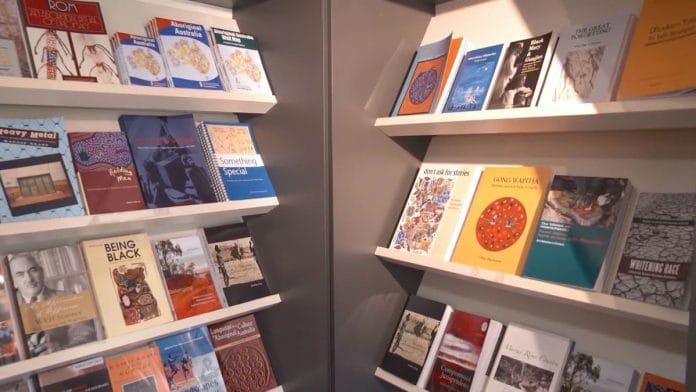If you haven’t spent years glued to your desk, with unvarying regularity, every single day, for hours on end, furiously typing or writing away, then you might as well forget about becoming a successful author. I have heard many an aspiring writer, after they have written the first fifty pages of their book, say that they are not inspired to go on, that they have exhausted their store of narratives, or that they have hit a ‘writer’s block’. ‘Writer’s block!’ Before they have written their first book! To me, that is an affected term for procrastination!
But if you do manage that discipline and develop the resolve to sit down and write every day, day after day, for months, then more often than not, something magical will happen. Ideas will dance before your eyes, words will cascade freely from your fingertips, sentences will twirl in your imagination and before you know it, you will have a theme that hangs together! Sure, it might take a little while for the creative juices to run from the tap, but if you stick with it just that bit longer, the magic will invariably grow wings and your book will unfold itself. So forget about inborn talent and creativity; just embrace the art of sitting, for in its humble repose lies the gateway to the realms of authorship!
Yes, becoming a successful author parallels the delicate art of weaving intertwining threads of persistence, perseverance and unwavering dedication. It’s about forsaking life’s little pleasures— forgoing that fun evening with friends to battle with an obstinate page which simply refuses to dance with our thoughts; embracing the dawn of a Sunday with determination to grapple with an idea that seemed within reach in the haze of half-sleep but now slips away like fine sand, rising from bed with the resolve to untangle the intricate web of a wayward plot, rather than take that drive to the golf course.
But the true essence lies within the realm of discipline, which requires not only unremitting commitment, but also the relinquishing of fleeting gratifications as a habit. Becoming an author requires a significant investment of time, steadfast focus and relentless dedication. It’s a journey that frequently calls for sacrifices, delicately balancing personal relationships, financial stability and the familiar solace of our comfort zones.
The writer’s life can be solitary, requiring extended periods of introspection with thoughts and words. This can sometimes make it difficult to maintain the lively social connections that enrich our lives. Additionally, writers must be prepared to face harsh criticism and rejection of their work, which can be disheartening and demoralising. In short, a career in writing is an audacious undertaking, fraught with considerable risk, as authors frequently encounter turbulent waters where financial stability is elusive. To sustain their passion and hone their craft, they may need to embark upon other jobs or gigs, to make ends meet. It is a delicate tango between one’s inner need to write and the more practical need to survive. But sacrifices and challenges notwithstanding, writers are driven by their passion for storytelling and the desire to create compelling, meaningful work that resonates with readers.
Indeed, one of the joys of being an author lies in the abundance of books that must surround their lives, and the act of reading itself. After all, if you don’t read, you can’t write. Besides, as the sage once proclaimed, the line between those who do not read and those who cannot read is gossamer thin. And therefore, those who do not read, by extension, also cannot write. Certainly, when we speak of reading, we’re not referring to perusing social media posts or WhatsApp forwards. We’re talking about books—thoughtfully crafted works that serve as nourishment for a writer’s soul. Books that refine our ideas, sharpen our language, polish our style, and influence our approach to writing.
Assuming you have written your magnum opus, or at least, say, 40–50 per cent of it, how do you get to finding yourself a good publisher?
You start with researching and shortlisting the right kind of publishers for you. This may mean identifying publishers who specialise in your genre or style and have a distinguished reputation and a history of publishing works that align with your intended book.
A reputed publisher for a book is the equivalent of publishing an academic paper in a peer-reviewed journal of high quality. It serves as a distinguished seal of approval, bestowed by a specialist of publishing who possesses a boundless wealth of reading experiences, surpassing what most of us could hope for in a lifetime. If a publisher takes on your manuscript, it’s akin to a certification affirming the worth and marketability of your work. It signifies that someone out there not only believes in the potential of your book but also envisions the possibility of it becoming a profitable venture, benefiting both you and them. It is akin to being awarded a resplendent golden star for your work, granted by a panel of experts who hold the power to shape your writing aspirations.
Striving to secure a reputable publisher isn’t unlike trying to get into an IIT or IIM. You know the odds are stacked against you, but you’re determined to give it a shot anyway; your very best shot, that is. Good publishers can add a ton of value to your work. They don’t just publish your book—they’ll often provide valuable editing and copyediting support to help shape your manuscript in the best light possible. And then, there’s the matter of distribution networks. A good publisher will have all the connections necessary to get your book into bookstores, libraries, airports and online retailers around the world. They can even lend a bit of marketing support to help get the word out about your book—though, let’s be honest, most publishers typically reserve their full efforts and spend on marketing only for their biggest stars—say, a generic Salman Rushdie, Arundhati Roy or Amitav Ghosh.
Now, before you start submitting your work hither and thither, you need to make sure you’ve got your ducks in a row. You’ll want to have at least four or five chapters (if not the whole book) completed before you even start looking for a publisher. All well edited, worked and reworked till your fingers and brains go numb. After all, you don’t want to get your hopes high only to realise that you can’t deliver the goods. Nor would a halfway decent publisher even look at your manuscript until then. Once you have shortlisted your list of publishers, it is time to craft a compelling submission letter, paying meticulous heed to the submission guidelines of the publishers (you can usually find it on their websites).
The submission letter should professionally introduce your manuscript to the editor with enticing allure. It should contain a synopsis that encapsulates the essence of your work. Whether the publisher explicitly demands it or not (and most do), it helps to include a comprehensive proposal that showcases the artistic merit,topicality of the subject, the intended readership and commercial viability of your work. And then the wait for a response begins—if you even get a response at all, that is. You should be prepared to wait anywhere from three to four months just to get a simple acknowledgment after submitting your manuscript. It’s like waiting for the Hogwarts acceptance letter when you are just a Muggle. So there’s nothing to it but persevere with fortitude and patience.
 This excerpt from V Raghunathan’s ‘The Lion, the Admiral and a Cat Called B. Uma Vijaylakshmi’ has been taken with permission from Westland Books.
This excerpt from V Raghunathan’s ‘The Lion, the Admiral and a Cat Called B. Uma Vijaylakshmi’ has been taken with permission from Westland Books.






